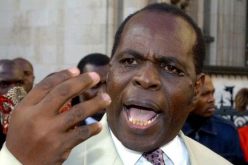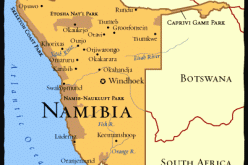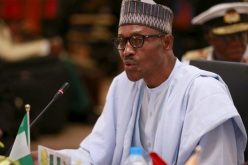 Attorneys for the Ghanaian opposition National Democratic Party (NDP) plan to file a petition in court Thursday seeking to challenge the electoral commission’s decision to disqualify former first lady Nana Konadu Agyemang Rawlings, presidential candidate of the party, from the Dec. 7 general election.
Attorneys for the Ghanaian opposition National Democratic Party (NDP) plan to file a petition in court Thursday seeking to challenge the electoral commission’s decision to disqualify former first lady Nana Konadu Agyemang Rawlings, presidential candidate of the party, from the Dec. 7 general election.
Mohammed Frimpong, general secretary for the NDP, says the disqualification appears politically motivated, to ensure the former first lady doesn’t pose any threat to incumbent President John Dramani Mahama of the ruling National Democratic Congress (NDC).
“We have credible information around that the ruling government is very uncomfortable with our candidate,” Frimpong said. “And if she stood, it means that she was going to divide a lot of votes with the ruling government. … And for that they hatched several plots against her.”
The NDC sharply rejected the accusation.
Frimpong contends the electoral commission failed to apply the law requiring that a party be notified of any problems in its nomination documents, and allowed time for issues to be amended.
“In this case … if there was any mistake, they could just come back and say, ‘Look, come and do a correction,’” he said. “Fortunately for us, we were not invited at all for all the two days, which presumed that we didn’t have anything wrong in our nomination forms.”
12 candidates disqualified
Frimpong’s remarks came after the electoral commission disqualified 12 presidential candidates, including the former first lady, for failing to meet requirements it stipulated ahead of the Sept. 30 deadline date to file their nomination documents.
The presidential candidates who are qualified to participate in the elections include Mahama, Nana Addo Dankwa Akufo-Addo of the New Patriotic Party (NPP), Ivor Kobina Greenstreet of the Convention People’s Party (CPP), and independent candidate Jacob Osei Yeboah.
Critics say the NDP had at least four years to adequately prepare to file its nomination and ensure it met all requirements. They say the NDP is to blame for the disqualification, since the party failed to check that those who endorsed the former first lady were legitimately registered to vote.
Frimpong disagreed, saying the electoral commission failed yet again to follow due process as the electoral law demands.
“This is a misunderstanding and misinterpretation of the law,” he said. “We had presented our papers duly signed on [September] 29 and the content was that there was no indication that anything was wrong, and nothing was wrong and nothing is still wrong.”
Electoral commission’s response
Local media quoted Amadu Sulley, deputy commissioner at the electoral commission, as saying the electoral body worked within the electoral laws to disqualify the 12 presidential candidates who didn’t meet the requirement.
“The EC is a law-abiding entity and would therefore respect the laws of the land in its operations,” Amadu said.










